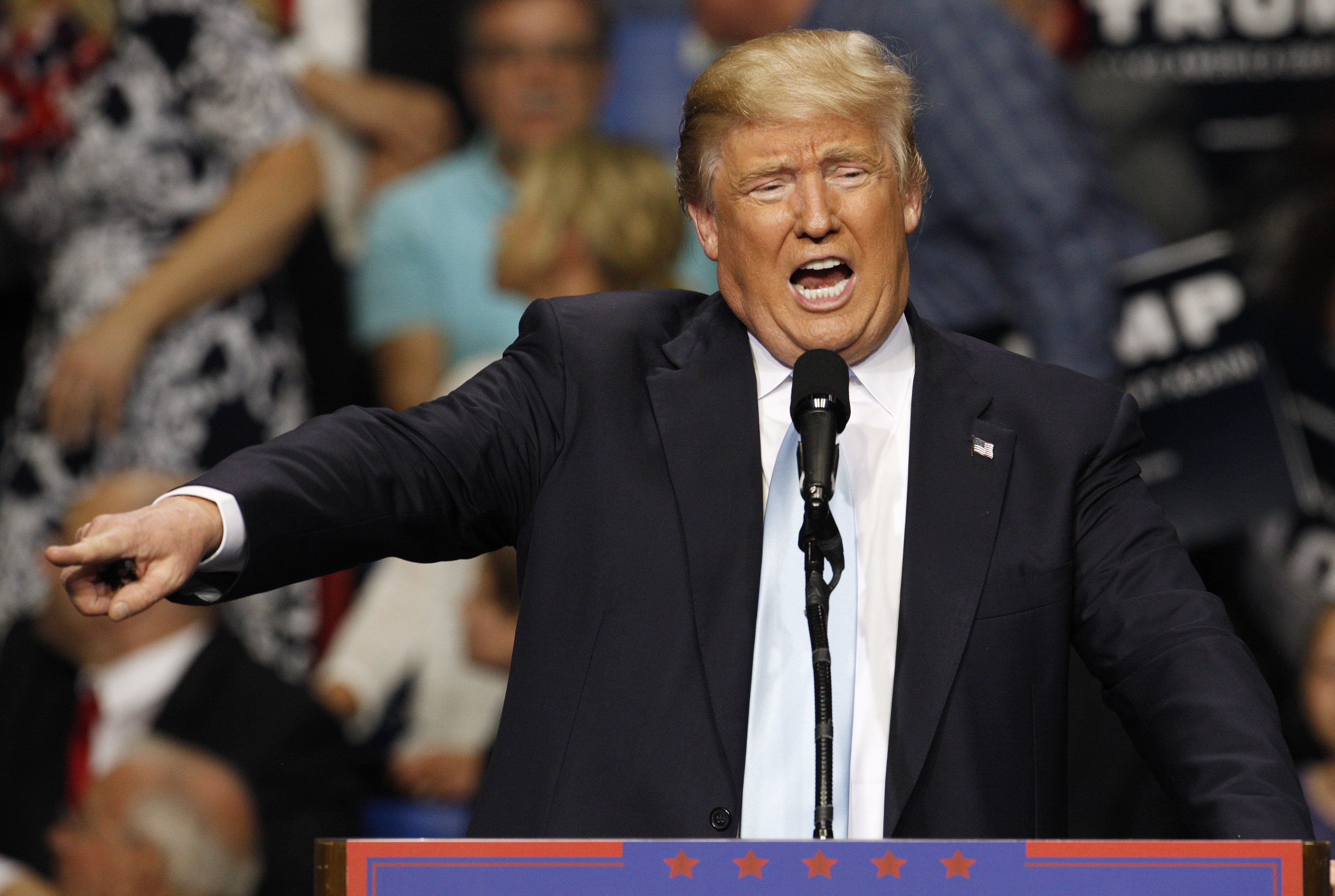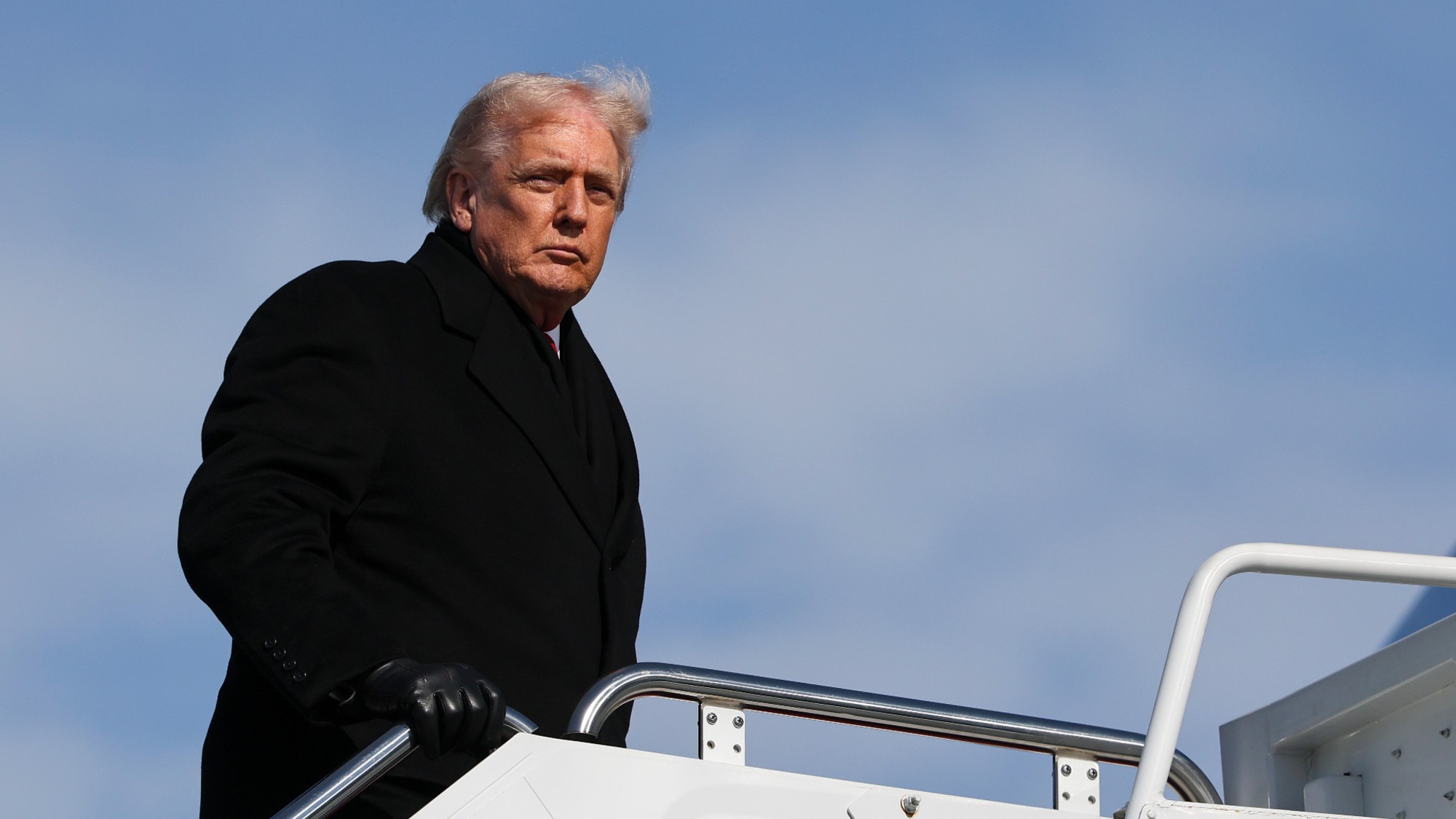How Donald Trump sparked an unprecedented crisis among Jewish Republicans
The GOP's 2016 Jewish outreach started as a pipe dream. Donald Trump turned it into a train wreck.

The Republican Party has a serious Jewish problem.
With the party failing to foresee and later oppose Donald Trump's rise, Republican Jewish outreach faces an unprecedented crisis. The party could end up with a nominee who alienates both Jewish conservatives by breaking with Republican orthodoxy on Israel and Jewish liberals by promoting authoritarianism, racism, and xenophobia.
Jewish Republicans have rested their case for drawing Jewish voters away from the Democratic Party on what they portray as stronger Republican support for Israel. They play to Jewish affection for Israel by disingenuously depicting President Obama as undermining the historic U.S.-Israeli alliance and snubbing the Israeli prime minister. They claim Obama has posed a dangerous threat to Israel itself, both through the Iran nuclear deal and the administration's efforts to forge an Israeli-Palestinian peace agreement.
The Week
Escape your echo chamber. Get the facts behind the news, plus analysis from multiple perspectives.

Sign up for The Week's Free Newsletters
From our morning news briefing to a weekly Good News Newsletter, get the best of The Week delivered directly to your inbox.
From our morning news briefing to a weekly Good News Newsletter, get the best of The Week delivered directly to your inbox.
Because American Jews are overwhelmingly liberal, multi-issue voters, this strategy was always a bit of a fool's errand. But it could be subverted completely if the party nominates Trump.
It could have been easy to anticipate this predicament. At the Republican Jewish Coalition Presidential Forum in December, Trump drew criticism for promoting anti-Semitic stereotypes while speaking to an audience of Jewish activists, many of them wealthy donors to the party. He suggested that they might not support him because he wouldn't take their campaign contributions. He called himself a "negotiator, like you." He said they were, like him, great dealmakers.
The speech, a characteristic Trump mash-up of insult and purported flattery, at the time provoked a nervous discomfort in the audience, but little tangible opposition.
Even Trump's promise to use his negotiating skills to reach a "great" peace deal between the Israelis and Palestinians — a heresy in conservative pro-Israel circles — failed to produce a coherent anti-Trump strategy from Republicans. The reception he receives at his scheduled speech before the American Israel Public Affairs Committee (AIPAC) next week will be telling.
A free daily email with the biggest news stories of the day – and the best features from TheWeek.com
As his campaign has marched on, Trump has become more brazen with his Islamophobia, his scapegoating of immigrants, and his promotion of "roughing up" protesters at his rallies, who are frequently black.
The Trump campaign also has failed to explain how it gave press credentials to a white supremacist radio host to broadcast live from a rally in Tennessee. When confronted by his refusal to disavow support from the anti-Semitic former Ku Klux Klan grand wizard David Duke, Trump said, "I don't like to disavow groups if I don't know who they are. I mean, you could have Federation of Jewish Philanthropies in groups." The Anti-Defamation League called Trump's statement apparently likening neo-Nazi groups and Jewish charities "obscene."
Jews do not make Hitler comparisons lightly, but increasingly Trump's rallies, at which he has deployed strongmen and incited followers to violence, are inviting them.
Rather than acknowledge these echoes, though, Trump has derisively dismissed them. After video of Trump supporters raising their arms in a gesture reminiscent of the Nazi salute went viral in Jewish and Israeli media, Trump trivialized his detractors. At last week's debate in Miami, he called the criticism "a total disgrace."
In that same debate, in a crucial state in which Jewish support can be pivotal, Trump defended himself with a word salad of some-of-my-best-friends-are-Jewish rhetoric. "I've made massive contributions to Israel," he said, because — don't you know? — Jews value money over everything else. "I have tremendous love for Israel. I happen to have a son-in-law and a daughter that are Jewish, okay? And two grandchildren that are Jewish."
Trump's Republican opponents appear helpless to defend themselves or their party against Trump's assault on their standing among Jewish voters. The second place contender, Ted Cruz, has strained to portray himself as the most dedicated friend of Israel. Leading a campaign that depends on the support of evangelicals, he has touted his endorsements from supposedly pro-Israel evangelicals. But that comes with its own pitfalls. Cruz has singled out the support of Mike Bickle, a controversial Missouri preacher who claims Jews are "spiritually blind" and must be brought to Christ in order for Israel to be "restored" for Jesus' return.
The GOP's 2016 Jewish outreach may have started as pipe dream. It has turned into a train wreck.
Sarah Posner writes about religion and politics. Her work has appeared in The New York Times, The Washington Post, and many other publications.
-
 ‘Ghost students’ are stealing millions in student aid
‘Ghost students’ are stealing millions in student aidIn the Spotlight AI has enabled the scam to spread into community colleges around the country
-
 A running list of everything Donald Trump’s administration, including the president, has said about his health
A running list of everything Donald Trump’s administration, including the president, has said about his healthIn Depth Some in the White House have claimed Trump has near-superhuman abilities
-
 NASA’s lunar rocket is surrounded by safety concerns
NASA’s lunar rocket is surrounded by safety concernsThe Explainer NASA hopes to launch a new mission to the moon in the coming months
-
 The billionaires’ wealth tax: a catastrophe for California?
The billionaires’ wealth tax: a catastrophe for California?Talking Point Peter Thiel and Larry Page preparing to change state residency
-
 Bari Weiss’ ‘60 Minutes’ scandal is about more than one report
Bari Weiss’ ‘60 Minutes’ scandal is about more than one reportIN THE SPOTLIGHT By blocking an approved segment on a controversial prison holding US deportees in El Salvador, the editor-in-chief of CBS News has become the main story
-
 Has Zohran Mamdani shown the Democrats how to win again?
Has Zohran Mamdani shown the Democrats how to win again?Today’s Big Question New York City mayoral election touted as victory for left-wing populists but moderate centrist wins elsewhere present more complex path for Democratic Party
-
 Millions turn out for anti-Trump ‘No Kings’ rallies
Millions turn out for anti-Trump ‘No Kings’ ralliesSpeed Read An estimated 7 million people participated, 2 million more than at the first ‘No Kings’ protest in June
-
 Ghislaine Maxwell: angling for a Trump pardon
Ghislaine Maxwell: angling for a Trump pardonTalking Point Convicted sex trafficker's testimony could shed new light on president's links to Jeffrey Epstein
-
 The last words and final moments of 40 presidents
The last words and final moments of 40 presidentsThe Explainer Some are eloquent quotes worthy of the holders of the highest office in the nation, and others... aren't
-
 The JFK files: the truth at last?
The JFK files: the truth at last?In The Spotlight More than 64,000 previously classified documents relating the 1963 assassination of John F. Kennedy have been released by the Trump administration
-
 'Seriously, not literally': how should the world take Donald Trump?
'Seriously, not literally': how should the world take Donald Trump?Today's big question White House rhetoric and reality look likely to become increasingly blurred